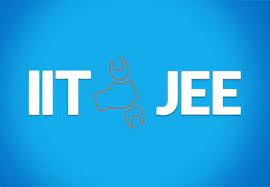IIT JEE is the only roadway to get into top IIT colleges in India. IIT JEE mains is neither tough nor easy. For the students who don’t follow the right preparation methods and tips, it is surely tough. For the students who follow the right way of preparation, it is probably an easy exam. Maths, Physics, Chemistry are the three sections of the IIT JEE main question paper. Since all the three sections carry the same 100 marks, every section is of utmost importance.
However, in the overall paper of IIT JEE main, Chemistry is supposed to be the easiest section to answer for the students. The reason is quite simple. Chemistry is a more concept-oriented subject rather than problem-solving. It is not the case with physics and maths. In Physics and Maths, the questions can be answered only with some complicated derivatives, formulas, etc along with theoretical knowledge on the subject. On the other hand, students can easily answer the questions from Chemistry directly without solving any complicated derivatives. That is why Chemistry is the easiest subject to answer in the overall JEE main question paper. So, students can answer the chemistry section quickly within less time and can also score high marks. It is also the reason why students must focus on the chemistry in IIT JEE preparations. This article details everything about chemistry preparation for IIT JEE.
IIT JEE mains chemistry syllabus:
The whole chemistry syllabus of IIT JEE can be categorised into three. They are Organic chemistry, Inorganic chemistry, Physical chemistry. The topics under each of them are as follows.
Physical chemistry:
Some basic concepts in chemistry
States f matter
Atomic structure
Chemical bonding and molecular structure
Chemical thermodynamics
Equilibrium
Solutions
Redox reactions
Electrochemistry
Chemical kinetics
Surface structure
Inorganic chemistry:
Classification of elements and periodicity in properties
Hydrogen
Block elements
P Block elements group 13 to 18
d- and f – block elements
Coordination compounds
Environmental chemistry
Organic chemistry:
Purification & characterization of organic compounds
Hydrocarbons
Chemistry in everyday life
Principles related to practical chemistry
Organic compounds containing halogens, oxygen, nitrogen
Polymers
Some basic principles of organic chemistry
Biomolecules
Chapter-wise weightage for the chemistry:
Though every chapter is a “must learn” thing in IIT JEE, some topics in some chapters carry a high weightage in the JEE main question paper. The high weightage indirectly indicated the importance of the topic. It also indicates the probability of repetition of the same questions from the same topics in the exam every year.
From the above table, students can easily assess the important topics that they must focus on during their preparation. You can also find the IIT JEE Chemistry study notes on any search engine easily.
How to grasp the topics easily in chemistry:
As mentioned earlier, Chemistry is more of a concept-oriented subject. Students need to understand the chapters in detail to answer the questions in the exam quickly within seconds of seeing the question. In IIT JEE, not every subject is the same. Each subject needs a different approach in the preparation for the JEE mains exam. Every subject has its way of preparation.
For example, Maths. Maths is a subject that requires a lot of practice apart from learning formulas. With just concentrating on formulas, you could not be able to score high in maths.
So, to score high in chemistry, here is how you can prepare.
Understand the concepts from standard books: If you are a person who wants to prepare the chemistry from the very fundamental stage, then start with NCERT chemistry books. NCERT books are great resourceful books when it comes to the fundamentals of any subject. Later on, start reading the concepts from the standard important books.
Put extra effort into these things: Since it is chemistry, surely there will be concepts like periodic tables, formulas, reactions, etc. Thus students must pay extra effort for such concepts in chemistry.
Periodic table: Periodic table is a very important concept in inorganic chemistry. A lot of practice is required to get the complete periodic table on your fingertips.
Note down all the important reactions: Noting down all the reactions separately for organic and inorganic chemistry is very essential. So, to retain the reactions for a long time, refer to this book every day. If you can memorize all the important reactions, chemistry sections will be a piece of cake for you to answer in the JEE main exam.
Put your hands on previous years’ question papers: Previous years’ questions would help you to get a clear idea in which pattern the questions are being asked. It would also help you to know your potential in answering them.
Attempt mock tests: Mock tests would give the students the vibe of writing the JEE main exam. That way, when you write the main exam, there will be no nervousness in attempting the paper.
Don’t mug up the concepts: Since it is a theoretical subject, some students might try to mug the concepts without learning the subject detail. Learn the concepts logically. Interconnect every concept you learn with the previous concept you learned.
Conclusion: Chemistry is the easiest section in the overall JEE exam. Preparing chemistry subjects using the above way would definitely bring you a good score. To sum up, Chemistry can be one of the kickstart subjects also to start your preparation. Many students who want to start there might be pondering on “which subject should I start my preparation with”. Such students can start their preparation with Chemistry. The subject is both easy to understand and easy to complete syllabus.







